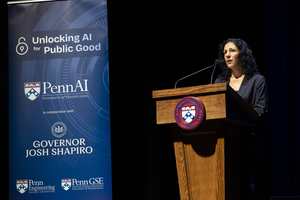For decades, education leaders and policymakers have pinned their hopes on standards-based education reform as a key to boosting student learning and narrowing achievement gaps. Now the Center on Standards, Alignment, Instruction, and Learning (C-SAIL) has produced some of the first evidence of how college and career readiness standards affect student achievement.

By 2015, all 50 states and the District of Columbia had adopted the new standards — in most cases, the Common Core State Standards — hoping to improve student achievement and equity. In the first longitudinal study of its kind, C-SAIL analyzed student test results from the National Assessment of Educational Progress to track the impact of college and career readiness standards on student achievement in math and English language arts.
This seven-year project shows that standards-based reform has not lived up to its promise, but it also provides a big-picture perspective of what worked — and didn’t work — in the implementation process. This knowledge holds lessons for education leaders as they undertake future reforms aimed at improving instruction and advancing student achievement.
This study found that the adoption of standards did not boost student achievement. In fact, the study saw small negative effects over the period studied (2010 to 2017). For fourth-grade reading and eighth-grade math, these impacts were statistically significant.
Funded by the Institute of Education Sciences of the U.S. Department of Education, C-SAIL launched in 2015 to examine teachers’ instructional alignment to their state’s standards and the impact of that instruction on student learning. The Penn GSE center is headed by Andy Porter, the former dean of Penn GSE from 2007 to 2014. The C-SAIL team also includes Penn GSE scholars Amy Stornaiuolo and Nelson Flores.
“That was one of C-SAIL’s major contributions: understanding the causal impact of the standards on student achievement,” said Morgan Polikoff, a C-SAIL co-director and associate professor at the University of Southern California Rossier School of Education. Polikoff earned his Ph.D. from Penn GSE in 2010.
C-SAIL also conducted an intervention experiment, the Feedback on Alignment and Support for Teachers (FAST) Program. Analysis of the results poked holes in the theory that improving alignment between classroom instruction and standards will boost student achievement.
“We designed a very careful coaching project that was intended to help teachers really understand and implement the standards,” Polikoff said. “We found that we could get teachers to better align their instruction to the standards, but that it didn’t improve student learning.” In fact, student achievement in math and ELA went down slightly.
A third strand of C-SAIL’s work examined the implementation of College and Career Readiness Standards in five states (California, Massachusetts, Ohio, Pennsylvania, and Texas). For this study, the C-SAIL team conducted surveys of teachers and administrators and undertook deep-dive case studies of five school districts. The researchers observed wide variation in how different states and districts implemented the standards: they found that teachers had less buy-in than school administrators, and that teachers of students with disabilities had more concerns than general-education teachers.
From the district case studies, C-SAIL “learned about the powerful role of curriculum materials and a curriculum-centered implementation approach,” Polikoff continued. In two of the districts, “we found that curriculum was really the centerpiece of their standards implementation efforts.”
Leaders in those districts involved teachers in the process of selecting curriculum materials and allowed teachers more flexibility after the first year of implementation. When teachers bought into the materials, the implementation of standards went smoother and stronger. Student achievement in these districts was above state averages. (Polikoff stressed that “these were qualitative case studies, so we’re not able to draw a cause-and-effect relationship.")
The C-SAIL researchers also looked at the effects of standards on students with disabilities and English language learners and found that the impacts roughly matched those for general-education students.
This study will provide lessons for education leaders for years to come as they consider which reforms to pursue with respect to instruction approaches, teacher buy-in, and student performance and achievement.
Media Inquiries
Penn GSE Communications is here to help reporters connect with the education experts they need.








